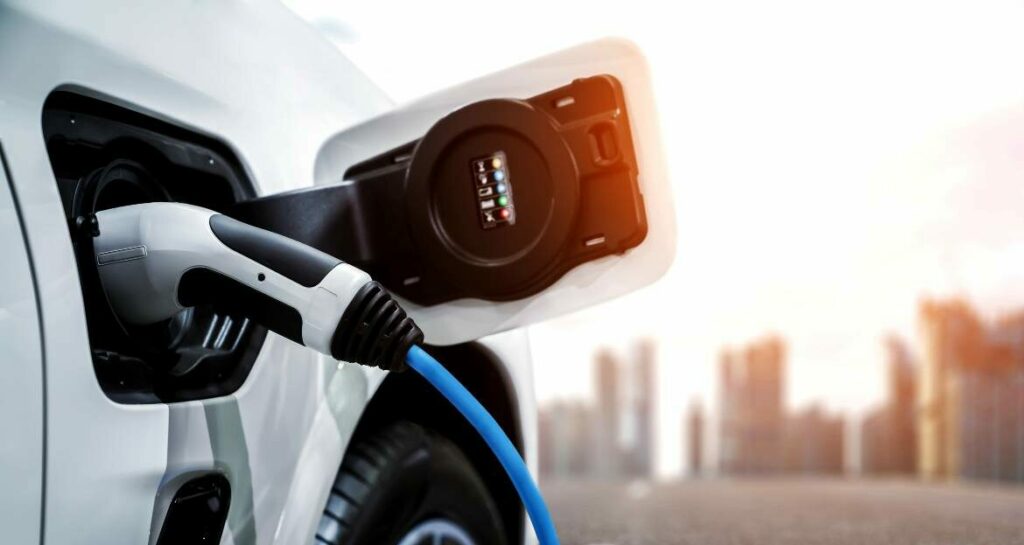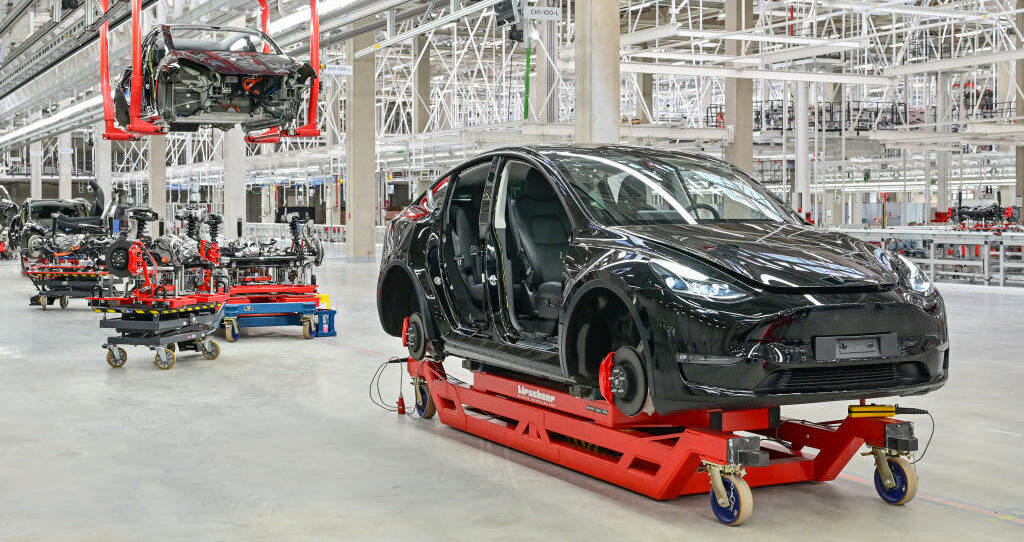Speaking of practical difficulties, a story in Blacklock’s Reporter brings the grim news that “Barely one percent of road vehicles in Canada are battery-powered electrics, Statistics Canada said yesterday.” Not very many, is it? And here you said we’d all be driving electrics by 2035 and be happy. Of course that promise was made back when 2035 sounded as though it was a long way off. But objects in calendar are closer than they appear… unless they’re the actual achievement of green goals.
As Blacklock’s explains:
“New data were released as members of the Commons trade committee questioned the feasibility of cabinet’s mandate to abolish new sales of gasoline and diesel powered cars by 2035.”
Well, we’re glad someone did. And we weren’t expecting the ill-informed zealots running Canada’s executive branch to do it. For instance Industry Minister François-Philippe Champagne, who told the committee:
“When you’ve been doing the same thing for a hundred years and you change the technology in the way that we’re doing, you have short term adjustment.”
Again one can only wish in vain that he was deliberately muddying the waters. Because the whole point is that we don’t have short term adjustment. We have everyone still driving gasoline- and diesel-powered cars and trucks because they work.
OK, to be fair, the city of Calgary, in progressive hands, launched an ambitious half-billion-of-other-people’s-dollars plan to the municipal vehicle fleet to electric and show those short-sighted private-sector fools what real efficiency looks like. And how did it go? Oh. Awkward. The suppliers of 14 “emissions-free, 28-foot shuttle buses” to be delivered in 2022 instead went… bankrupt. So they leaped into committee, preparing to draft a scheme for a plan to devise a call for bids by year-end for a handful of buses to arrive in 2026, or on the 14th of never.
Meanwhile a conservative MP asked Champagne “Isn’t it better to remove those mandates?” and was told “To your point, we see the transition.” But nobody else can.
Incidentally in addition to 327,732 EVs out of 25,700,000 registered road vehicles, Canada also has 444,564 hybrids and another 145,101 “plug-in hybrids”. So progress of a feeble sort, right? No. The 2035 ban on new ICE cars includes hybrids. Evacuate in our moment of triumph?



During the first half of the 1990s I visited a factory near Indianapolis that turned out to be a top secret electric vehicle test facility which was attempting to use inverters and a high tech alternator to make an electric car which would create AC power generated by a small gasoline engine to in order to charge batteries which would deliver AC power to a large power inverter mounted in the cargo space to make DC power for the servo motors on the axels, the high tech alternator did not exist yet but they were working on its core...which would be brazed with silver alloys....which they were failing at because they had no idea what they were doing. I could see that their feeble attempts were doomed so I made a suggestion, in return they gave me a ride in a Chevy Lumina van that had been turned into an EV which used lead acid batteries, it was very fast but only for 8 minutes! Years later they introduced the Chevy Volt and the brochure talked about the high tech alternator that made this possible. The Volt never ran on gasoline power, it could go 650 miles on a small tank of gas and it was a good looking car! GM discontinued it because it used evil gasoline and now their EV plans are failing at all levels. I have never heard of a Chevy Volt having a battery fire! Progress!!!
It's very easy to make plans and promises for a future where the people making said plans and promises won't be in power to actually try to make them happen, or when the voters remember that they were made. That 2035 policy target assumes that the Liberals will be in power in 2035. Right now the polling analysts at 338Canada give them less than 1% chance of being in power in 2025. The incoming government that inherits this mess will have every incentive to take an axe to it, and no reason to refrain from doing so.
I have a general comment to all the negativity around EVs from 'climate realists'.
I own an EV. I live in a highly industrialized Northern European country (Denmark), with a dense electrical infrastructure. I have an 11 kW home charger and charge about 10-15 hours a week in total, which means that I can chase the cheapest hours, bringing my average 'fuel' costs per mile down to about 2.5 cent/mile. Less in Summertime and more in the cold months.
I have gone on 1000-mile (each way) road trips to Southern Europe twice, and a 1000 mile drive is about 1-3 hours longer than in my previous diesel car, but only because I could drive 100-125 mph at night on the German autobahn, which is simply not feasible in an EV. Optimum winter speed is 70-75mph, and in the summer 80-85 when combining drive and charging time.
EVs are highly subsidized in Denmark, first by greatly reducing the very high (>100%) car registration (purchase) tax, and secondly by being exempt from the 12 cent/kWh electricity tax for electricity consumed for charging and EV. Those high subsidies obviously play a great part in the economics of the car.
Even so, I spent nearly 100,000 USD on my EV, which was about twice as much as the used diesel BMW I owned before. Yet, my total cost per year/month/mile is lower with the EV. I assume my car has depreciated about 30% in the 1½ I have had it, but I am afraid to look. If I keep it the 6 years I planned, the economics play out and depreciation will tail off. There is a high cost of 'early' adoption of EVs due to rapid technological development, meaning that a 5-year old car has significantly poorer performance. Still, I made the leap when is saw one that was 'good enough' that it would still be a useful EV after 5 years.
In conclusion, I have a car that is much more luxurious, warm when I enter it (controlled by phone app), super snappy (0-60 in 5.6 sec.), extremely quiet and comfortable. I take care of the battery, so I expect >500,000 mile lifetime for motor and battery.
In Europe, you can practically spit from one fast charger to the next, so getting around with an EV is no problem whatsoever. So on balance, I would say the benefits outweigh the downsides - under my circumstances.
I completely understand how EVs would be a bad option in rural Canada. But that doesn't make EV's a total dumpster fire of stupidity. EV mandates, though, or even worse, outright banning of combustion cars, is another matter entirely. There is also the fact that PHEVs, hybrids and micro-hybrids (small 48V battery and c. 10 kW emotor assist) can greatly reduce the lifetime gasoline consumption of ICE cars, which is entirely beneficial. Because whether we need to slash oil consumption for the climate or not, it behooves us to save some for later. And those fuel saving technologies have already been developed, to the point where several automatic gear boxes now incorporate a 10-20 kW electric motor as standard, for micro-hybrid (48V) applications.
I did miss the sound the the engine a bit. Until I drove a friend's ICE car, and then I missed the awesome power of the electric motor in my own car a lot more.